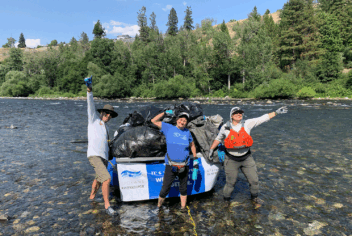Why Are Nonprofits Experiencing An Insurance Crisis? And What Can the Nonprofit Sector Do About it?
Rising premiums, poor coverage from commercial carriers, and even the loss of coverage make it hard for nonprofits to get the insurance they need. But it doesn’t have to be that way.
Information and Referral Services: Insurance Explained
Nonprofits that provide information and referral services help connect people to resources in times of need. What do these nonprofits need most from their insurance?
Environmental Nonprofits: Insurance Explained
Environmental nonprofits work to protect the planet — but they need insurance that protects them, too. With missions like these, which coverages are most important? Here’s what some real NIA members had to say.
Texas is Doing More Than California to Protect Children in Foster Care
California foster family agencies are currently finding it difficult to afford liability insurance. Texas lawmakers passed a no-nonsense solution.
From the Claims Files: Right of Way
When your mission faces risks on the road, protecting your nonprofit means selecting drivers you can trust and ensuring your vehicles are safe to drive.
Protecting Your Community From Impacts of the Climate Crisis
As climate change brings about more extreme weather patterns, nonprofits need to prepare to help one another in times of severe heat or cold.
Tips for diverse/equitable nonprofits. Leaders share the pandemic's effects. New ways to define success. A webinar on key governance topics.
Ballet Groups: Insurance Explained
Nonprofit ballet groups bring music, movement, and storytelling to their communities. What do these nonprofits need most from their insurance provider? Here’s what some real NIA members had to say.
Friends of Parks: Insurance Explained
“Friends of the Park” nonprofits serve community parks, nature preserves, open spaces, and other beloved resources. How can insurance best serve these essential nonprofits?
Daycare Centers: Insurance Explained
With missions that can serve children or adults, nonprofit daycare centers provide a place of safety and support. But they can’t operate without insurance — so we asked some real NIA members which coverages matter most to them.
From the Claims Files: Molestation & Sexual Abuse
Nonprofits need to be a place of safety and trust — for both your team and the community you serve. That means it’s crucial that your organizational culture, policies, and practices do not ignore or enable molestation or sexual abuse.
Arts and Cultural Groups: Insurance Explained
Nonprofit arts and cultural groups lift up their communities through artistic expression. What’s most important to these organizations when it comes to their insurance? Here’s what some real NIA members had to say.
LGBTQ+ Community Centers: Insurance Explained
Nonprofit community centers that support the LGBTQ+ community provide advocacy, education, safety, and so much more. What’s most important to these organizations when it comes to their insurance needs? Here’s what NIA members had to say.














